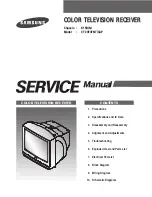
7
A-band / B-band display area
A-band / B-band display modes
: VFO mode
: PMG mode (Recalls only the frequencies registered in PMG)
: Memory mode (The numeric is the memory channel number)
Press the BAND key while in memory mode, the MAG function can automat-
ically recall memory channels in groups for each of the following bands: (For
details, refer to “Using the Memory” on page 30.)
/
/
/
/
/
/
/
: Home Channel
VDR
: VFO Dual Receive (VFO
↔
Priority Memory Channel)
MDR
: Memory Channel Dual Receive (Memory Channel
↔
Priority Memory Channel)
HDR
: HOME Channel Dual Receive (HOME Channel
↔
Priority Memory Channel)
: Repeater minus (-) shift
: Repeater plus (+) shift
: Split operation
Specified Memory Channel (Specify that only designated memory channels are
scanned during memory scanning.)
Skip Memory Channel (Permits designating unwanted channels to be skipped during
scanning.)
Priority Memory Channel (The transceiver checks for signals on the frequency regis-
tered to the selected Priority Memory Channel, once every 5 seconds.)
ATT (attenuator) function (When the desired signal is extremely strong, activate the
attenuator to reduce the incoming signal from the antenna.)
Bell function is activated.
TX/RX DG-ID is displayed
TXnn (The transmit DG-ID number), RXnn (The receive DG-ID number)
Squelch type is displayed (For additional details, refer to the Advanced Manual.)
: Tone Encoder (tone frequency is displayed)
: Tone Squelch (tone frequency is displayed)
: DCS (Digital Code Squelch) (DCS code is displayed)
: Reverse Tone (tone frequency is displayed)
: Signal Squelch
: Pager (EPCS)
The following can be set when the squelch expansion (see page 64) is on.
: Send the DCS code only during transmission.
: Send the CTCSS tone signal during transmit, and wait for the DCS code in
receive mode. (tone frequency is displayed)
: Send the DCS code during transmit, and wait for the CTCSS tone signal in
receive mode. (tone frequency is displayed)










































